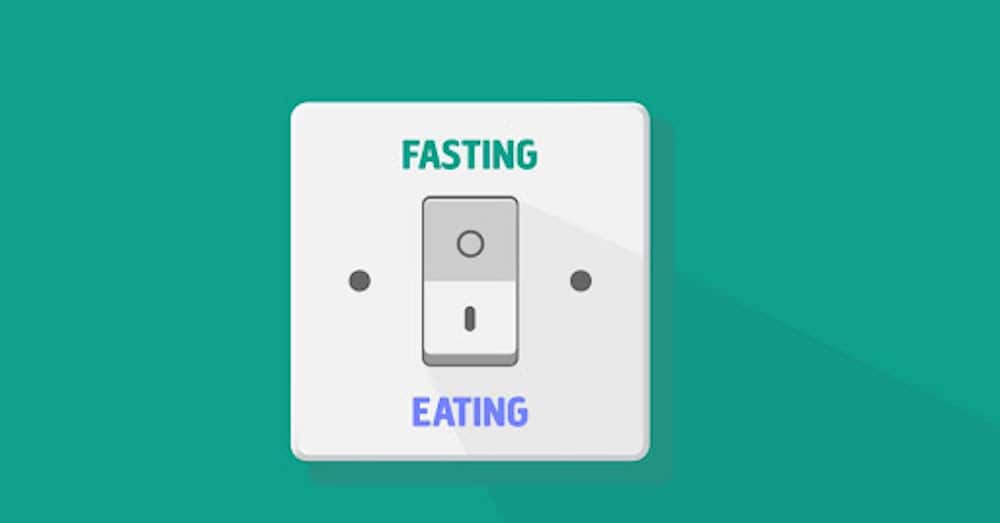“Stranger Things” star David Harbour used an intense intermittent fasting diet to lose 75 pounds in seven months for the new season. Intermittent fasting has been a trendy diet plan favored by Hollywood stars like Jennifer Aniston, Chris Hemsworth, Benedict Cumberbatch, and Nicole Kidman for years.
Intermittent fasting is not exclusive to Hollywood. More and more people regard this way of losing weight as a healthy lifestyle. Michelle Grey, a vice president of an investment bank in Baltimore, is 41 years old and a mother of two. In addition to doing Pilates twice a week, she also insists on intermittent fasting. She said, “To me, intermittent fasting is not about dieting or staying hungry, but a regular lifestyle. It is about getting back to how we were designed to live. We do not graze like animals but work hard all day and then enjoy our meal, cherishing it during a specific window.” In her social network, one-third of the people live this way.
Intermittent fasting — specifically, time-restricted feeding — can improve markers of cardiometabolic health, according to research on the effects of intermittent fasting on health, aging, and disease. It can trigger a metabolic switch from glucose-based to ketone-based energy, with increased stress resistance, longevity, and a decreased incidence of diseases, including cancer and obesity. The other study published in the journal Nature found how intermittent fasting works inside cells to slow the aging process and points to potential ways to get the health benefits of fasting without the hunger pangs.
Although intermittent fasting is prevalent in Hollywood and supported by some scientific evidence, there are still voices of doubt. The public’s question is whether it is harmful to the human body. In the view of industry practitioners like Locke Meng, Sr. Director, Product Management at Soon Health, “Most people assume that intermittent fasting is just not eating. People question how you do not have breakfast or lunch. They couldn’t grasp the concept.” He added, “In fact, the essence of intermittent fasting is to pursue a scientific and healthy lifestyle, not at the expense of health. With the help of scientific fasting apps or tools, people can achieve the desired effect more effectively.”
Fasting apps on the market, such as Fastic, Zero, and Dofasting, would help people, through scientific means, achieve their goals in some way. Based on people’s different physiques and conditions, the fasting apps would not follow the same pattern but be different from person to person. Take the current SoonFasting as an example. SoonFasting is a fasting educational app and an eating tracker that supports users in leading a new, healthy lifestyle.
Because many people lack self-control, following up with scientific fasting tools is an excellent way to self-supervise. SoonFasting lowers the threshold and applies to all levels, from the essential time tracker to the most advanced online coaching programs.
For each person’s physical condition, like their current weight, ideal weight, eating habits, daily schedule, and health situation, SoonFasting creates a personal fasting and meal plan to help them achieve their goals.
People can follow the daily tasks. SoonFasting breaks down a long-term plan into simple daily tasks suitable for beginners.
Apart from that, there are intuitive fasting trackers that make the process easier. People can track their fasting hours, water intake, steps, and weight in the app to guide them daily.
What’s more, SoonFasting’s in-depth progress reports showcase their efforts and how far they’ve come.
Although products such as SoonFasting provide relatively scientific tools, as a reminder, if you are pregnant or have a health problem such as diabetes and are considering intermittent fasting or planning to fast long-term, you should see your doctor or healthcare expert. As Michelle Grey said, “I stand against disordered eating and dieting culture, but I’m not a medical doctor. I wouldn’t recommend that anybody do that without speaking to their doctors and researching.”
Fasting alone is nearly impossible, and it’s the plight of most people. Our minds make sticking with intermittent fasting quite tricky, and failure can be common without other people’s assistance. That’s why there are so many fasting apps for people to choose from—when you have something by your side to help you see your progress and keep track of your fasting, and it becomes so much easier. But everyone must act according to their ability. Fasting requires an individualized experience. No two people are the same, and no two paths to weight loss and health are either.


